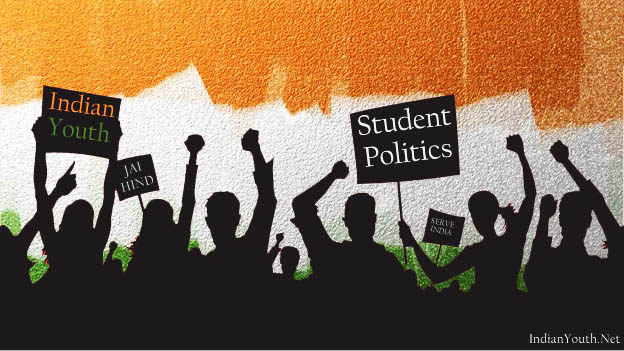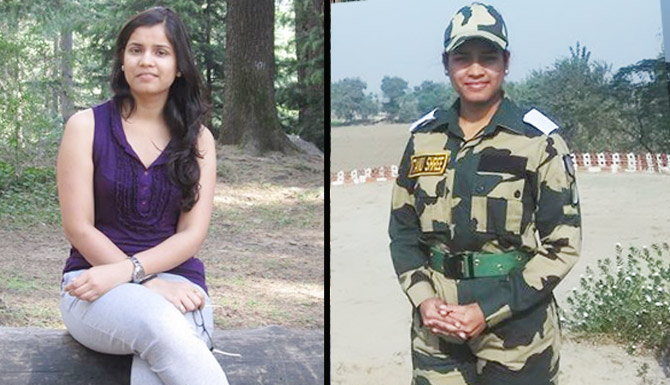In politics, they say – “timing is everything.” Never before has there been a more apt time to assess the question that has divided the society for a very long time indeed, and that is: ‘Should students take part in politics?’

While on the one hand, it has often been asserted that students should have only one focus in life and that is to study well: ‘Learn skills that will prepare them for life’. On the other hand, however, it has been countered with the argument that as the future of the country (and the entire race of mankind), students cannot afford to remain oblivious to politics: ‘Participate in politics for it is your future at stake’…And the debate rages on.
Then again, no matter how afraid you are of the idea of students’ active participation in politics, the truth is, students have no other alternative BUT to participate in politics. Why? Because they are a citizen of a country and it is the right and duty of every citizen to participate in politics. In fact, this sentiment was echoed by Dwight D. Eisenhower too (the 34th US President), who said: ‘Politics ought to be the part-time profession of every citizen who would protect the rights and privileges of free people and who would preserve what is good and fruitful in our national heritage’.
This is because politics is as old as the story of the civilised man himself. The day man decided to stay in an organised group, he needed a system to govern the group…and that was how politics was born. Thus, as members of the group, it is the responsibility of every student (in fact, every citizen over 18) to participate in politics. For unless the citizenry keeps a tab on how it is governed, it would soon be taken over by rogue elements of the group, which is exactly what has happened in our country too.
If we look at how the current voting ratios stand, the last general elections saw a massive voting turnout of 66.4% (that is, 66.4% of people who were eligible to vote, had come to cast their vote), which was a new record for India. However, before you start celebrating this high turnout, here’s a sobering thought: “In India alone, the poor [who are mostly uneducated] form not just the overwhelming majority of the electorate, but vote in larger numbers than the better-off. Everywhere else, without exception, the ratio of electoral participation is the reverse,” writes Perry Anderson, the British historian and political essayist, who recently authored the book, The Indian Ideology.
What does it signify? That most people, who come from the educated class, still do not vote…let alone, participate in active politics. This is a rather strange phenomenon, which is a particularly distinguishing factor of India…and one, that’s rather alarming…and the reason for the present political state. After all, the present brand of “questionable” leaders were not elected because we chose to vote for them, they were elected because we chose to not exercise our votes…we, the educated better-off urban Indian. This is exactly what Plato, the great philosopher, predicted centuries ago, when he said that — “One of the penalties for refusing to participate in politics, is that you end up being governed by your inferiors.”
Plato’s words are especially relevant when we look at the governing class that rules India. Most of us, in fact, lament at the lack of good politicians without realising that where will this class come from if we – the educated citizens – refuse to participate. And this is why, it is imperative that every student must make it a mission to take active interest and participate in politics…after all, there is a difference between politics as a mission and politics as a profession.
In fact, whenever students have come forward against a cause, their collective voices have changed the very course of history…and as history has borne witness, these student movements have also churned out a new generation of political leaders, which let’s be honest – is something that we seriously need for our country’s future. Take the Bihar movement, for example (popularly called the JP movement, after the firebrand leader, Jayaprakash Narayan). It was a movement spearheaded by the student’s union that fired the imagination of the common man and became the epicentre of change. This movement provided the students an important channel through which they could express their dissent and resentment over myriad youth issues – such as unemployment, inflation, and food scarcity. Fighting against corruption, the students called for a society that was built on ‘Lokniti’ (People’s participation) rather than ‘Rajniti’ (Political power). [Note: While the Bihar movement was initiated by students in Bihar, it later became an all-India movement and turned against PM Indira Gandhi.]
So, while ‘politics is more difficult than physics,’ according to Einstein; “anyone who says they are not interested in politics is like a drowning man who insists he is not interested in water,” said Mahatma Gandhi, the Father of this Great Big Nation.






























